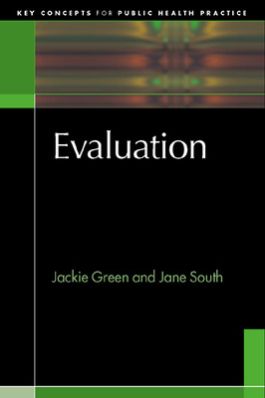Evaluation
- Access the eBook anytime, anywhere: online or offline
- Create notes, flashcards and make annotations while you study
- Full searchable content: quickly find the answers you are looking for
Acknowledgements
Section A: Principles
Introduction – setting the scene
Evaluation – concepts and approaches
Evidence and indicators of success
Section B: Practice
Developing an evaluation plan
Evaluating community health initiatives
Ethics and evaluation
Section C: Challenges
Evaluation with hard-to-reach groups
Measuring the fuzzy aspects
Making you evidence count
Conclusion
References
Index
Why is it important in public health?
How can evaluation lead to improved health outcomes?
Evaluation and evidence-based practice are core to professional practice within the wider public health field. Practitioners in a range of sectors, including the voluntary sector, are increasingly being held to account for the success of projects and programmes of activity. Conducting evaluation can be challenging. Furthermore, the move to evidence-based practice demands that practitioners are able to critically interpret published evaluation findings.
Evaluation is a readily accessible examination of the key theories and principles underpinning approaches to evaluation. It offers a guide to how these principles can be implemented in practice and provides insights into dealing with some of the real-life challenges and complexities of evaluation, including:
- Identifying indicators of success
- Developing an evaluation plan
- Ethical issues
- Making the most of findings

